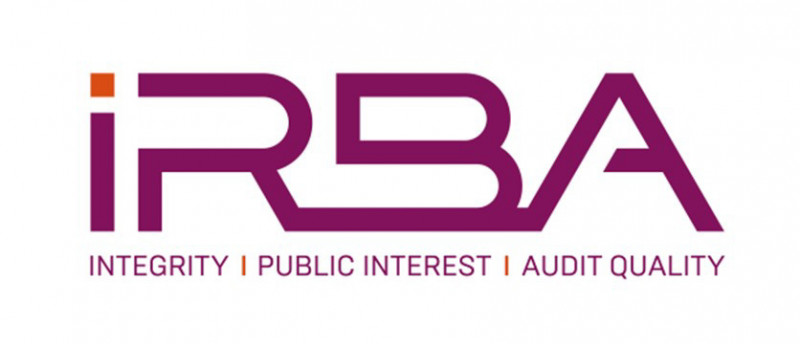CATEGORIES
- (3) Negotiating Tax Debt and Payment Arrangements with SARS
- (2)Account / Profile
- (549)Accounting
- (2)Accounting and Finance
- (28)Audit
- (156)Auditing and Assurance
- (1)Business
- (1)Business Management
- (3)Business Rescue
- (101)CIPC
- (7)Compliance
- (18)Ethics and Professionalism
- (46)Financial Reporting
- (1)Government Funding Applications
- (4)Guides
- (1)Individuals Tax
- (26)Law
- (37)Legal and Compliance
- (2)Management
- (10)Miscellaneous
- (28)Money Laundering
- (1)Personal & Professional Development
- (2)Practice Management
- (2)Professional Ethics
- (3)Public Sector
- (145)Regulatory Compliance and Legislation
- (41)SARS Issues
- (27)Sustainability Reporting
- (37)Tax
- (1)Tax Update
- (9)Technology
- (1)Wills, Estates & Trusts
- Show All
IRBA: Comments requested on 2 EDs issued by IESBA
- 14 February 2024
- Sustainability Reporting
- South African Accounting Academy

The International Ethics Standards Board for Accountants (IESBA) has issued, for public comment, the following two Exposure Drafts (EDs) on the first comprehensive suite of global standards on ethical considerations in sustainability and assurance:
-
International Ethics Standards for Sustainability Assurance (including International Independence Standards) (IESSA) and Other Revisions to the Code Relating to Sustainability Assurance and Reporting ED; and
-
Using the Work of an External Expert ED.
These are especially relevant in a context where sustainability information is increasingly important for capital markets, consumers, corporations and their employees, governments and society at large. Additionally, new providers outside of the accounting profession are progressively playing a prominent role in sustainability assurance.
The 2 EDs are:
-
IESSA and Ethics Standards for Sustainability Reporting ED, structured as follows:
-
Chapter 1: Proposed IESSA (New Part 5).
-
Chapter 2: Proposed Revised Glossary.
-
Chapter 3: Proposed Consequential and Conforming Amendments Resulting from IESSA.
-
Chapter 4: Proposed Revisions to Parts 1 to 3 of the Extant Code to Reflect Sustainability Reporting Considerations for Professional Accountants.
It proposes a clear framework of expected behaviours and ethics provisions for use by all sustainability assurance practitioners, regardless of their professional backgrounds, as well as professional accountants involved in sustainability reporting.
The goal of these standards is to mitigate greenwashing and misleading reporting, and to elevate the quality of sustainability information, thereby fostering greater public and institutional trust in sustainability reporting and assurance.
Refer to our previous alert on this ED dated 31 January 2024
-
Using the Work of an External Expert ED
The proposed new sections 390, 290 and 5390 establish an ethical framework to guide professional accountants or sustainability assurance practitioners, as applicable, in evaluating whether an external expert has the necessary competence, capabilities and objectivity to use their work for the intended purposes. The proposals also include provisions to aid in applying the IESBA's International Code of Ethics for Professional Accountants (including International Independence Standards) (IESBA Code) conceptual framework when using the work of an external expert.
Refer to our previous alert on this ED dated 30 January 2024
The IESBA has indicated that it will provide fact sheets and other explanatory materials about the Eds.
Relevance for South Africa:
-
The Independent Regulatory Board for Auditors (IRBA) adopted the IESBA Code, published in 2018, following the issue of proposed amendments on exposure in South Africa, together with South African enhancements. Its Committee for Auditor Ethics (CFAE) will consider these proposed revisions to the IESBA Code for incorporation into the IRBA Code of Professional Conduct for Registered Auditors (Revised April 2023) (IRBA Code). While Part 2: Professional Accountants in Business is a component of the EDs, the IRBA has not adopted this section.
-
Under the provisions of Section 10(1)(a) of the Auditing Profession Act No. 26 of 2005 (the Act), the IRBA may, by notice in the Government Gazette and according to the provisions of Section 4(1)(c) of the Act, publish, for public information and comment, an amendment to the IRBA Code. Accordingly, a Board Notice to the same effect will be published in the Government Gazette for public comment, for a minimum period of 30 days.
The EDs are available in a PDF format and may be downloaded from the IRBA website.
Click here to download the 2 Exposure Drafts:
Relevance to Auditors, Independent Reviewers & Accountants:
-
As an accountant, auditor and independent reviewer, you need to comply with the International Code of Professional Conduct.
-
Failure to adhere to the Code may lead to disciplinary action.
-
Auditors, Independent Reviewers and Accountants should be aware of the latest standards of the International Code of Ethics for professional accountants, as well as approved exposure drafts that have been issued.
Relevance to Your Clients:
-
None






